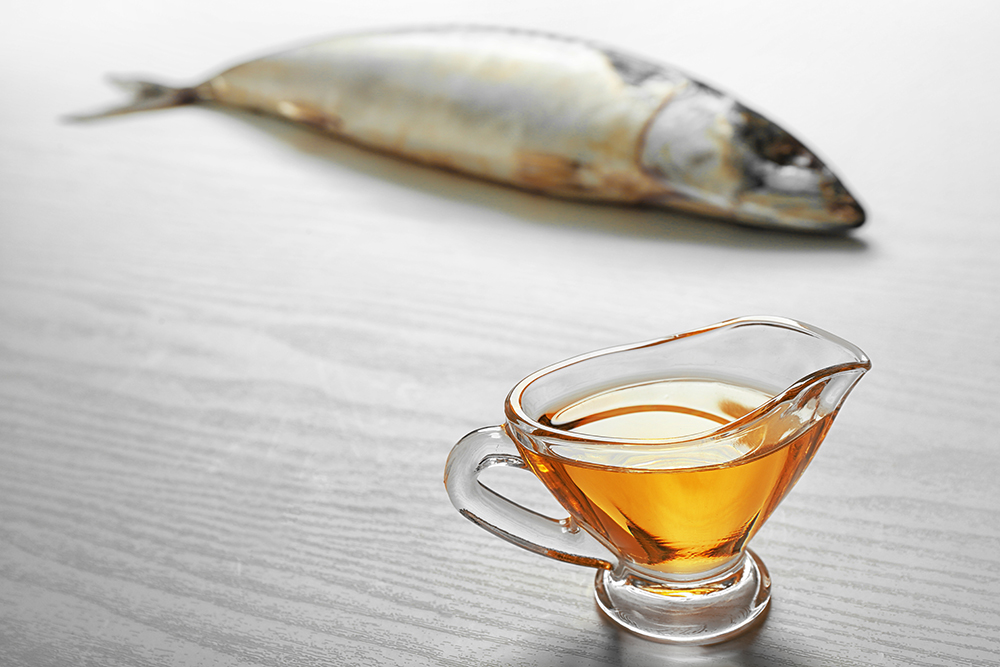 🖨️ Print post
🖨️ Print post
Cod liver oil is one of the main foods that the Weston A. Price Foundation (WAPF) recommends for a healthy diet. It abounds in nutrients that are sadly lacking in our diets today. Cod liver oil provides fat-soluble vitamins A and D, which Dr. Price found present in the diet of traditional people groups in amounts ten times higher than those in “modernized” diets!
Unfortunately, in recent years, there has been some controversy around the subject of fermented cod liver oil, which has caused some concern about its safety and health benefits. Sally Fallon Morell, the head of the Weston A. Price Foundation, dispels the confusion and answers the questions that have been posed about it. She explains the value of cod liver oil in detail. She describes the results Dr. Price saw when he introduced it into American diets. She goes through the cod liver oil extraction process, how fermentation allows us to get oils without compromising the nutrient content of the livers, and more.
Most importantly she addresses head-on questions of rancidity and the motivation of those who have leveled accusations against a specific cod liver oil company and the Weston A. Price Foundation itself. In the end, you will gain clarity on the cod liver oil controversy and you will learn more about why cod liver oil is so critical for our health today.
Notes:
Highlights from the conversation include:
- the beginning of the cod liver oil controversy
- why the Weston A. Price Foundation recommends cod liver oil that isn’t heated but extracted by fermentation
the history/roots of the fermentation process - the outstanding results Dr. Price observed when he gave cod liver oil, in combination with high vitamin butter oil, to his patients
- how the president of Green Pasture Products learned that most liver oil is extracted by molecular distillation, which largely destroys the natural vitamins in the oil
- the four grades of cod liver oil and which is most effective
- Sally’s experience when she first tried fermented cod liver oil (fclo) around 2006
- why fclo might cause a reaction for those who are sensitive to fermented foods
- how Sally shipped a bottle of fclo to a lab for testing the moment accusations surfaced about its rancidity and the results that came in, indicating that it was highly stable
- how cod liver oil’s taste is not an indicator of its rancidity
- why trans fats found in fclo do not indicate any adulteration with vegetable oil
- how WAPF is planning on conducting more research on fclo in the coming year
- the difficulty of testing for natural vitamin levels
- the ideal vitamin level
- how the accusation that Green Pasture wasn’t using cod is false because Pollock is a type of cod
- why we need not fear the “toxicity” of liver
- how difficult it is to get vitamin A from vegetables, which is why we turn to liver
- why some may have stirred up this controversy (fclo is a threat to other clo companies)
Resources:
https://www.westonaprice.org/health-topics/cod-liver-oil/fermented-cod-liver-oil-concerns/
https://www.westonaprice.org/health-topics/cod-liver-oil/report-cod-liver-oil/
More on https://www.westonaprice.org/cod-liver-oil/


Growing up in the 50’s and 60’s my mom would tell my sister and I if we were good we would get cod liver oil. WE LOVED IT! Q: Does fermented cod liver oil taste different than what I remember? I’ve tried lemon flavored Carlson’s and hated it and thought why did they ruin the flavor. I have been taking Rosita capsules for about a year and I’m thinking of switching to fermented. just trying to decide whether to take liquid or capsule. BTW I’m the baby at 62 my sister is 72 mom just passed at 93 and dad will be 94 in June.
I think that the liquid fermented CLO tastes fine. if you don’t like the taste, you can chase it with something.